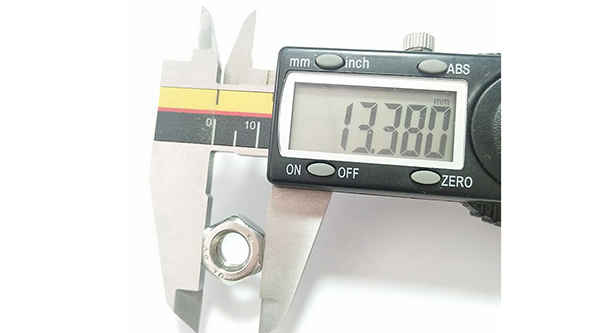What is the tolerance range of precision screws?
What is the tolerance range of precision screws?
Service Hotline
+86760-8787 8587We have more than ten years of production experience in the screw industry, the main products are: elastic metal gasket, tamper-proof screw, double-ear washer, non-standard fastener screw, flat washer spring washer combination set bolt, precision internal tooth locking washer, Fasteners such as U-shaped plug nuts, connecting nuts, internal and external serrations, metric high-strength screws, extended belt screws, 302 nuts, hexagonal plastic head screws, flat head copper studs, flat head socket head socket head bolts with needles, etc., due to the product material and Specifications vary, prices vary, please contact us if necessary.


Self-locking nuts generally rely on friction. The principle is to press the embossed teeth into the preset holes of the sheet metal. Generally, the diameter of the square preset holes is slightly smaller than that of the rivet nut. The nut is connected with the locking mechanism. When the nut is tightened, the locking mechanism locks the ruler body, and the ruler frame cannot move freely to achieve the purpose of locking; when the nut is loosened, the locking mechanism disengages the ruler body, and the ruler frame edge body movement

The technical problem to be solved by Yueluo is to provide a medical self-locking screw, which can fix the inner screw inside the outer screw, expand the outer screw head through the thimble on the inner screw, and use the outer cone on the inner screw. The body expands, compresses the surrounding bone, and achieves a double locking effect through the self-locking between the internal and external screws; it can hook the surrounding fixed parts when the anti-retraction ring is retracted to achieve the anti-regression effect; effectively prevent false implantation. After a long period of service, the looseness, fretting and other adverse reactions of the body are used to solve the defects caused by the existing technology.


self-locking nut is a nut that can self-lock by friction. The general nut will loosen itself due to vibration and other reasons during use. In order to prevent this phenomenon, the self-locking nut was invented. The main functions of self-locking nuts are anti-loose and anti-vibration. For special occasions. Its working principle is generally self-locking by friction. The types of self-locking nuts classified by function include those with nylon rings, those with neck closures, and those with metal anti-loosening devices. They are all effective torque type lock nuts (see GB/T3098.9-2002 national standard).

In all kinds of machines and equipment, the various parts are fixed and assembled by bolts and nuts. However, after the machine and equipment are used for a period of time, the bolts and nuts will become loose, which will bring great safety hazards to the use of the machine and equipment. For this reason, when bolts and nuts are used for connection, a spring washer is installed between the nut and the connected part. The spring washer is in the shape of a circular ring, and the ring is not closed, and is sleeved on the bolt. The addition of the spring washer has a certain anti-loosening effect, but it can only prevent the nut from rotating relative to the bolt. In the case of large vibration of the machine, the bolt will rotate relative to the connected part.

The above content is uploaded by Yueluo or the Internet. If there is any copyright issue, please contact [email protected].

What is the tolerance range of precision screws?

How to choose the right stainless steel screw manufacturer?

Why is there an R angle under the head of the hexagon head s...

We have more than ten years of production experience in the ...

We have more than ten years of production experience in the ...

We have more than ten years of experience in screw industry ...

We have more than ten years of experience in screw industry ...